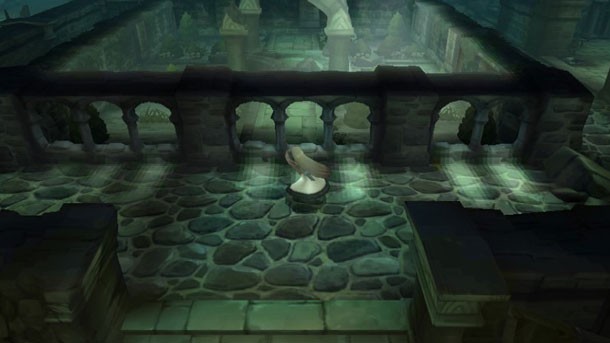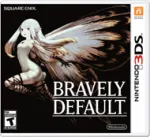Bravely Default Review

Western JRPG fans have been waiting to get their hands on Bravely Default ever since it released in Japan in 2012. That wait has brought with it a few extra perks, as Silicon Studio used the past year to smooth out some of the original shortcomings. Despite these helpful tweaks and an engaging combat system, enjoying all Bravely Default has to offer still requires a great deal of patience.
Bravely Default gets off to a slow start. The story revolves around a war between the Crystal Orthodoxy, a religious group that worships Luxendarc’s four massive crystals, and the Duchy of Eternia, a collection of secular forces that want to use the crystals for scientific purposes. Players control a foursome of heroes fighting on the side of the orthodoxy, and must activate the crystals before the world is shrouded in darkness.
The opening hours of the story and characters are rife with clichés, and the dialogue is excessively wordy, often bombarding players with a dozen lines of dialogue where a few would suffice. The text-only party chat scenes are the worst offenders, offering pointless banter among your group that repeatedly hits the same tired notes. The protagonists are particularly fond of discussing Luxendarc’s cuisine, to the point where even George R.R. Martin would roll his eyes.

Luckily, the combat is good right out of the gate and only gets better. The titular Brave and Default system, which allows players to borrow actions from subsequent turns or save them up in advance, adds a clever wrinkle to the turn-based battles and makes steamrolling weaker foes a quick and easy affair. The job system has all the depth you could want; players unlock 24 different roles, assign a secondary role that gives access to an additional job’s moves, and equip a number of support abilities as well. All of this mixing and matching just begs players to experiment with different strategies, and because characters level up independently from their jobs, you don’t have to sacrifice your overall stats to try something new. Some early balancing issues eventually even out, and you don’t need to grind unless you want to max out additional jobs in the final hours of the game.
The combat holds up for the long run, which is good because like the dialogue, Bravely Default’s structure is in desperate need of a shrewd editor. A hefty amount of pointless backtracking is required, with some missions forcing you to run back and forth between faraway areas just to talk to characters – they don’t even qualify as fetch quests. These instances could easily be handled by short cutscenes, and feel like mere padding in an already lengthy game. The experience you acquire from defeating monsters on the overworld map is inconsequential compared to that awarded in dungeons and boss fights, so the endless running around adds nothing of value. You can turn off random encounters at any time (and eventually unlock fast travel) to speed things up, but I was still left scratching my head at the pointlessness of some of my objectives.

The story finally starts to get interesting around the 30-hour mark, thanks to a game-changing plot twist. The protagonists display some real growth as well, breaking out of their clichéd molds. The underlying mystery is intriguing, but comes at a cost, requiring you to replay massive portions of the game multiple times. The monsters and bosses you re-encounter are more powerful, and different dialogue keeps things interesting, but that doesn’t excuse the fact that you’re caught in a continual loop of visiting the same locations and repeating the same actions. If you want to see the true ending, you must go through the same cycle of main dungeons five times.
Bravely Default also contains a number of interesting social features, allowing friends to share job abilities, summon customized special moves, and build up their own town which periodically gifts the player useful items (A.I. players will fill in for lonely gamers). Aside from the inclusion of some unwanted but inconsequential microtransactions, these novel features are rewarding additions to the experience.
Despite being plagued by a slow pace and late-game repetition, Bravely Default’s core mechanics kept me engaged until the credits. If you consider game length an indisputable indicator of quality, Bravely Default’s repetition may not bother you. However, I hope that Silicon Studio learns how to trim the fat for the sequel.

Get the Game Informer Print Edition!
Explore your favorite games in premium print format, delivered to your door.
- 10 issues per year
- Only $4.80 per issue
- Full digital magazine archive access
- Since 1991










